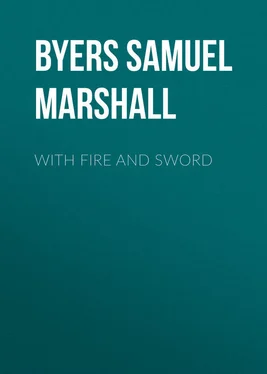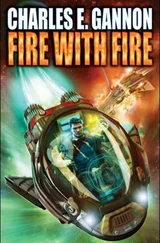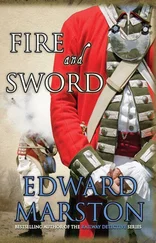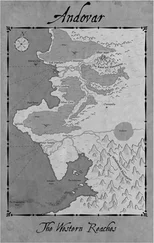Samuel Byers - With Fire and Sword
Здесь есть возможность читать онлайн «Samuel Byers - With Fire and Sword» — ознакомительный отрывок электронной книги совершенно бесплатно, а после прочтения отрывка купить полную версию. В некоторых случаях можно слушать аудио, скачать через торрент в формате fb2 и присутствует краткое содержание. Жанр: foreign_language, foreign_antique, foreign_prose, Историческая проза, на английском языке. Описание произведения, (предисловие) а так же отзывы посетителей доступны на портале библиотеки ЛибКат.
- Название:With Fire and Sword
- Автор:
- Жанр:
- Год:неизвестен
- ISBN:нет данных
- Рейтинг книги:3 / 5. Голосов: 1
-
Избранное:Добавить в избранное
- Отзывы:
-
Ваша оценка:
- 60
- 1
- 2
- 3
- 4
- 5
With Fire and Sword: краткое содержание, описание и аннотация
Предлагаем к чтению аннотацию, описание, краткое содержание или предисловие (зависит от того, что написал сам автор книги «With Fire and Sword»). Если вы не нашли необходимую информацию о книге — напишите в комментариях, мы постараемся отыскать её.
With Fire and Sword — читать онлайн ознакомительный отрывок
Ниже представлен текст книги, разбитый по страницам. Система сохранения места последней прочитанной страницы, позволяет с удобством читать онлайн бесплатно книгу «With Fire and Sword», без необходимости каждый раз заново искать на чём Вы остановились. Поставьте закладку, и сможете в любой момент перейти на страницу, на которой закончили чтение.
Интервал:
Закладка:
Now for months my regiment, with others, had chased up and down, and all over that unhappy old State of Missouri, trying to capture and punish these bands of murderers. On the old steamboat War Eagle , too, we paddled for weeks along the "Muddy Missouri" River, landing every here and there to have a little brush with guerrillas who had fired on our boat from the banks or from secret recesses in the woods. It was rare that we could catch them or have a real fight. Their kind of war meant ambuscades and murder.
At last an end came to this dreadful guerrilla-chasing business in Missouri so far as we were concerned, anyway. We were to stop running after Price's ubiquitous army too. We were no longer to be the victims of ambuscades and night riding murderers.
The glad news came to my regiment that we were to be transferred to the South, where the real war was.
One morning we left the cold and snow, where we had lived and shivered in thin tents all the winter, left the thankless duty of patrolling railroads in the storm at midnight, and marched in the direction of St. Louis. A long, cold, miserable march it was too, hurrying in the daytime and freezing in our bivouacs in the snow and woods at night. Many a man we left to sicken and die at some farmhouse by the roadside. Our destination was New Madrid, where we were to be a part of Pope's army in the siege and capture of that town.
As we were about to embark on boats at St. Louis we beheld in the snow and storm many steamers anchored out in the pitiless waters of the Mississippi River. These vessels were loaded with shivering thousands in gray and brown uniforms, the prisoners whom General Grant had captured at the battle of Fort Donelson. There were twelve or fifteen thousand of them. Seeing this host of prisoners made us feel that at last the Union army had a general, although we had scarcely heard of U. S. Grant before. This army of prisoners taken in battle was his introduction to the world.
Shortly we were before New Madrid, and the siege conducted by General Pope commenced. The town was defended by strong forts and many cannon, but its speedy capture by us helped to open up the Mississippi River. It was a new experience to us, to have cannonballs come rolling right into our camp occasionally. Yet few men were injured by them. We were in more danger when a fool officer one day took our brigade of infantry down through a cornfield to assault a gunboat that lay in a creek close by.
The Rebel commander had expected us, and had his grape shot and his hot water hose, and such things all ready for us. We went out of that cornfield faster than we went in. This was real war, the thing my regiment had been so longing for, in place of chasing murderers and guerrillas in Missouri.
We entered New Madrid one morning before daylight. The enemy had left in awful haste. I recall finding a dead Rebel officer, lying on a table in his tent, in full uniform. He had been killed by one of our shells. A candle burned beside him, and his cold hands closed on a pencil note that said, "Kindly bury this unfortunate officer." His breakfast waited on a table in the tent, showing how unexpected was his taking off.
Our victory was a great one for the nation, and it put two stars on the shoulder straps of General Pope. It made him, too, commander of the Eastern army.
A comrade in Company A of my regiment had been wounded a few days before and had died in the enemy's hands. I now found his grave. At its head stood a board with this curious inscription: "This man says he was a private in the Fifth Iowa Regiment. He was killed while trying to attend to other people's business."
Our command was now hurried to the Shiloh battlefield, of course too late to be of any use. But we took part in the long, wonderful, and ridiculous siege of Corinth, under Halleck, when our great army was held back by red tape, martinets, and the fear of a lot of wooden guns that sat on top of the enemy's breastworks, while that enemy, with all his men, and with all his guns, and bag and baggage, was escaping to the south. Our deeds were no credit to anybody, though here and there we had a little fight.
One incident of great importance, however, happened to my regiment here. It was the death of our colonel. One night when he was going the rounds of the picket lines out in the woods he was shot dead by one of our own men. The sentinel who did the killing declared that Rebels had been slipping up to his post all night, and when he would hail with "Who goes there?" they would fire at him and run into the darkness. He resolved to stand behind a tree the next time and fire without hailing. By some accident Colonel Worthington and his adjutant were approaching this sentinel from the direction of the enemy. Suddenly the sentinel held his gun around the tree and fired. The bullet struck the colonel in the forehead, killing him instantly. As he fell from his horse the adjutant sprang to the ground and cried, "Who shot the officer of the day?" "I fired," exclaimed the sentinel, and he then told of his experiences of the night. He was arrested, tried, and acquitted. Yet there were many among us who believed that the colonel had been intentionally murdered. He was one of the most competent colonels in the army, but among his soldiers he was fearfully unpopular. He was, however, a splendid disciplinarian, but this was something the volunteers did not want. In their minds the colonel had been only a petty tyrant, and not even wholly loyal. With a different disposition he certainly would have been a distinguished soldier. He was one of the most military-looking men in the whole army, but friends he had none. More than once his life had been threatened by soldiers who regarded themselves as having been treated badly by him.
His body was brought into camp the next morning and lay in his tent in state. He was given a military funeral, and the horse that was bearing him when he was killed was led behind his coffin.
After his death numbers of the men of the regiment were indignant, when they found among his papers warrants and commissions intended by the governor for them, commissions that had never been delivered. Their promotions had never come about. Now they knew why.
Worthington was succeeded by Colonel C. L. Matthies, one of the bravest, best, and most loved commanders of our army. Later Matthies was made a general, and at the close of the war died of wounds received in battle.
Although I was quartermaster sergeant of the regiment, I was always careful that this should not keep me away from the command when enduring hard marches or when engagements were coming on. When in camp I kept my rifle in one of the ammunition wagons (of several of which I had charge), but if the alarm sounded my rifle was on my shoulder and I was the private soldier in the ranks of the company. I deserved no special credit for this. I was only doing my duty. We had muzzle-loading Whitney rifles and bayonets. The equipment and rations we carried in weight would have been a respectable load for a mule.
CHAPTER III
All that summer, after taking Corinth, we chased up and down the State of Mississippi, trying to get fair battle with the Rebel army. At last the chance came, and for my regiment it was an awful one – the battle of Iuka.
The battle of Iuka took place on the 19th of September, 1862. It was fought by a handful of the troops of General Rosecrans against half the army of General Price. Grant was only a few miles away, but although commander-in-chief, he knew nothing of the hardest-fought battle of the Civil War until it was over.
Читать дальшеИнтервал:
Закладка:
Похожие книги на «With Fire and Sword»
Представляем Вашему вниманию похожие книги на «With Fire and Sword» списком для выбора. Мы отобрали схожую по названию и смыслу литературу в надежде предоставить читателям больше вариантов отыскать новые, интересные, ещё непрочитанные произведения.
Обсуждение, отзывы о книге «With Fire and Sword» и просто собственные мнения читателей. Оставьте ваши комментарии, напишите, что Вы думаете о произведении, его смысле или главных героях. Укажите что конкретно понравилось, а что нет, и почему Вы так считаете.












